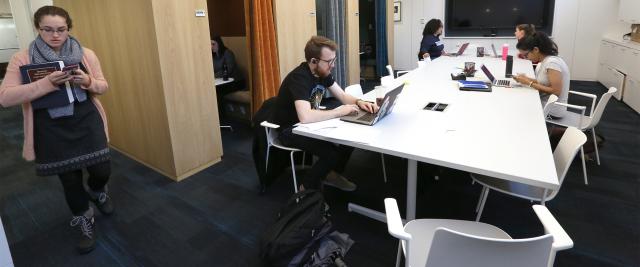In each clinic, you are the lawyer in our in-house, nonprofit law firm, Morningside Heights Legal Services, Inc.
Columbia’s rich array of clinics, taught by a dynamic group of full time faculty, put students in the role of attorneys, providing legal assistance to individuals, communities, and organizations that would not otherwise have access to high-quality representation. With the faculty’s close, individualized supervision and feedback, students take on primary responsibility for working with clients to understand their goals and develop a plan to achieve them. As students assume this professional role, they develop the lawyering skills and ethical judgment that will be critical in their legal careers.
Under the supervision of faculty, staff attorneys, and fellows, clinic participants perform impact litigation, direct services representation, collaborative investigations, media campaigns, and grassroots advocacy.
No matter the subject matter, each clinic teaches essential lawyering skills which are transferable to any kind of law you may practice. Successful students consider taking a clinic even if it is not in the same subject matter they currently plan to practice, and consider applying to more than one clinic to increase the possibility of being able to take one before you graduate. Columbia’s clinics are designed to advance student learning and serve communities on multiple dimensions:
- Type of practice: Columbia has multiple clinics in each type of practice including litigation, transactional, policymaking, legislative lawyering, mediation, and community/movement lawyering.
- Lawyering skills: multiple clinics focus on each type of lawyering skill including legal analysis, writing, oral advocacy, collaboration, and strategic thinking.
- Type of client: Columbia clinics represent individuals, nonprofit organizations, businesses, community groups, national advocacy organizations, and governmental organizations.
- Subject matter: Columbia clinics capture a range of legal subject matter including international law, human rights, immigration, federal, state, and local law, health law, mediation, housing, environmental justice, economic justice, business law, criminal law, civil procedure, administrative law, access to justice, movement lawyering, community lawyering, and more.
Clinics are intensive learning experiences, consisting of direct lawyering experience and a seminar. Each clinic awards at least 7 points of experiential credit which fulfills the ABA and Columbia Law School experiential learning requirement. Many clinics also offer major or minor writing credit opportunities. Students are expected to devote an average of 21 hours per week to their clinic work, which includes classroom and class preparation time.
Clinics Offered 2026-2027
The clinics that will be offered in Fall 2026 are:
Entrepreneurship and Community Development Clinic
Post-Conviction and Reentry Justice Clinic (Webpage coming soon)
Smith Family Human Rights Clinic (Year long clinic)
The clinics that will be offered in Spring 2027 are:
Post-Conviction and Reentry Justice Clinic (Webpage coming soon)
Sexuality and Gender Law Clinic (Webpage coming soon)
Smith Family Human Rights Clinic (Year long clinic)Available Fall 2026/ Spring 2027 Experiential Courses

